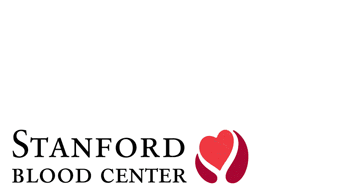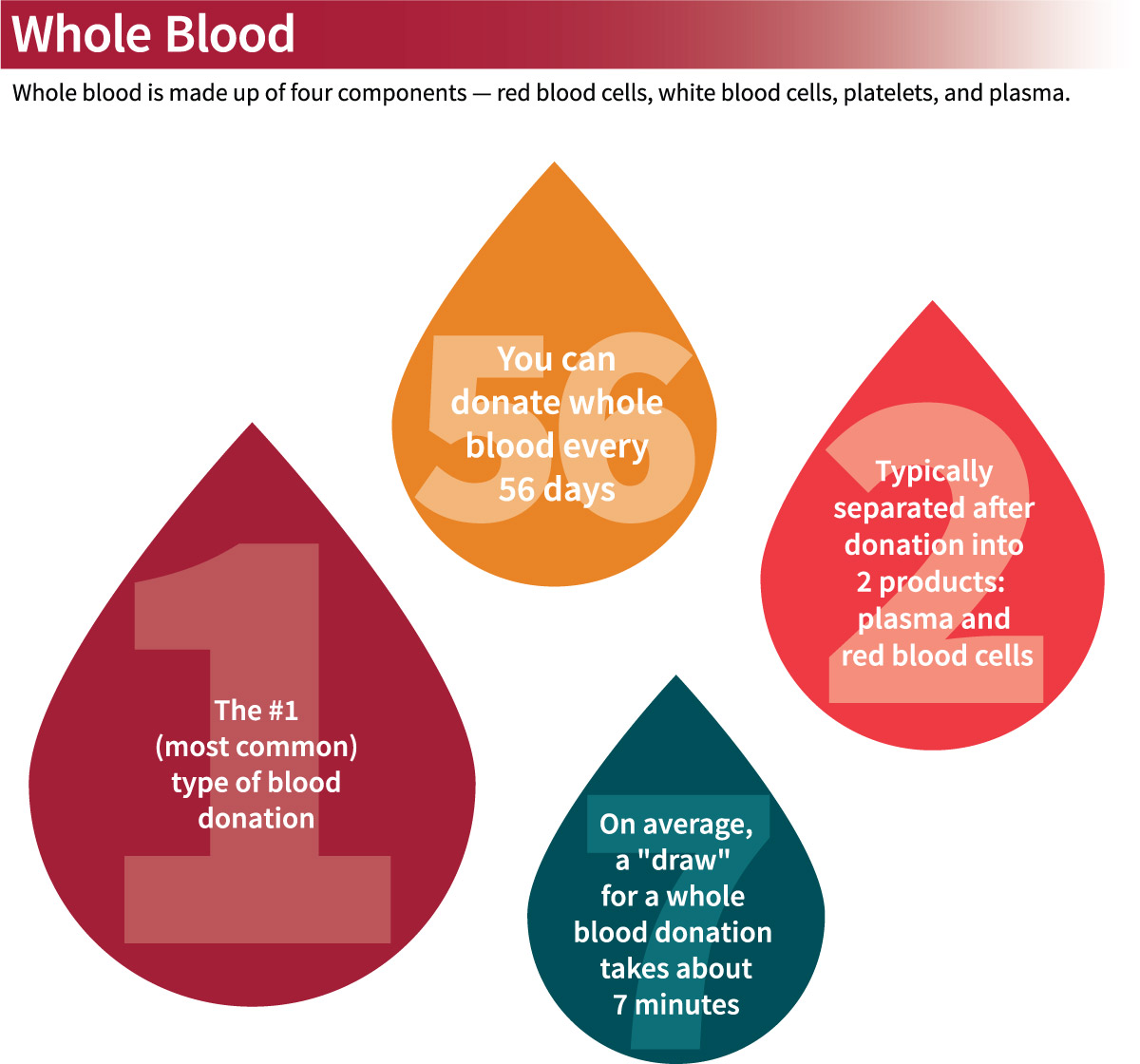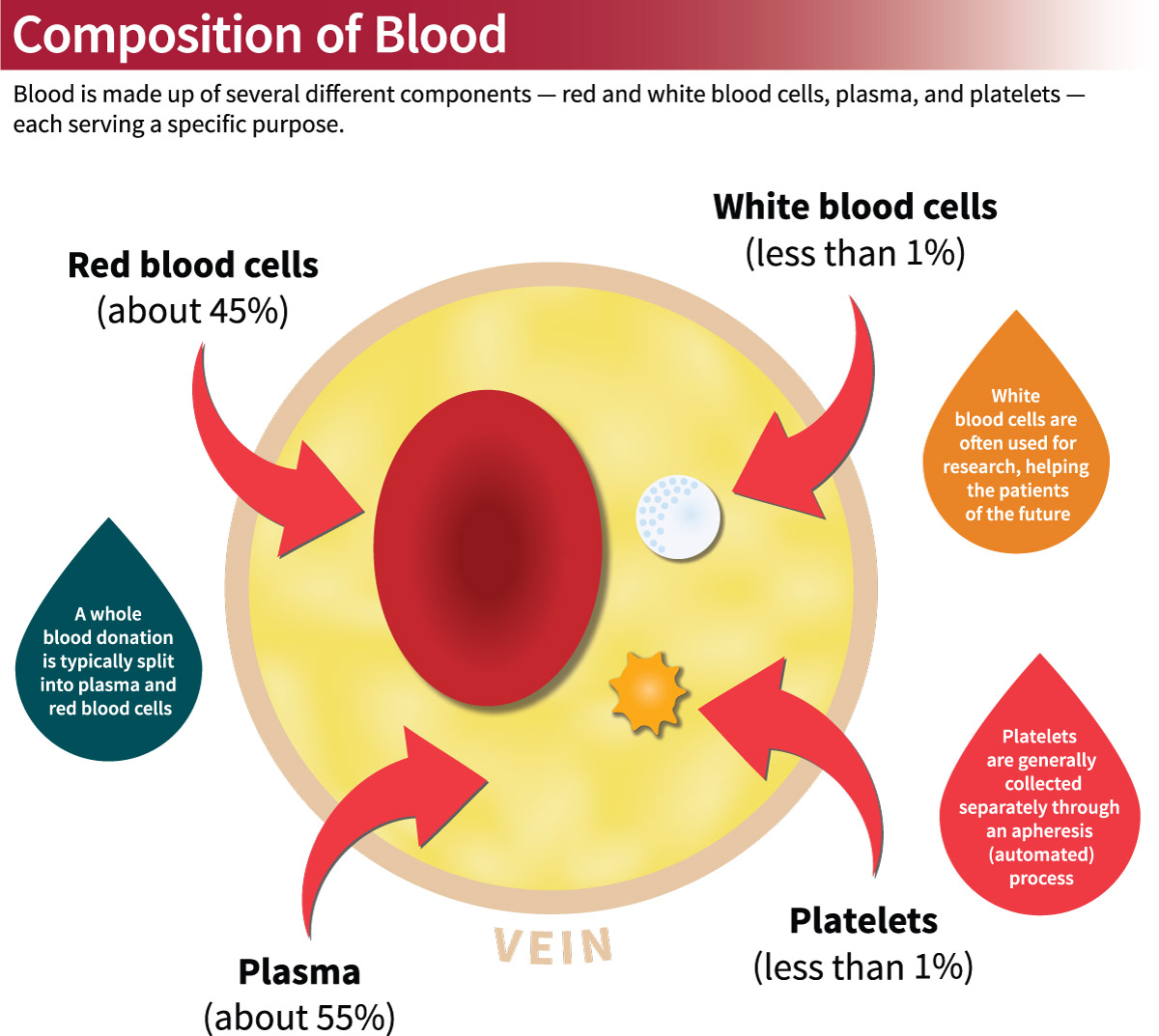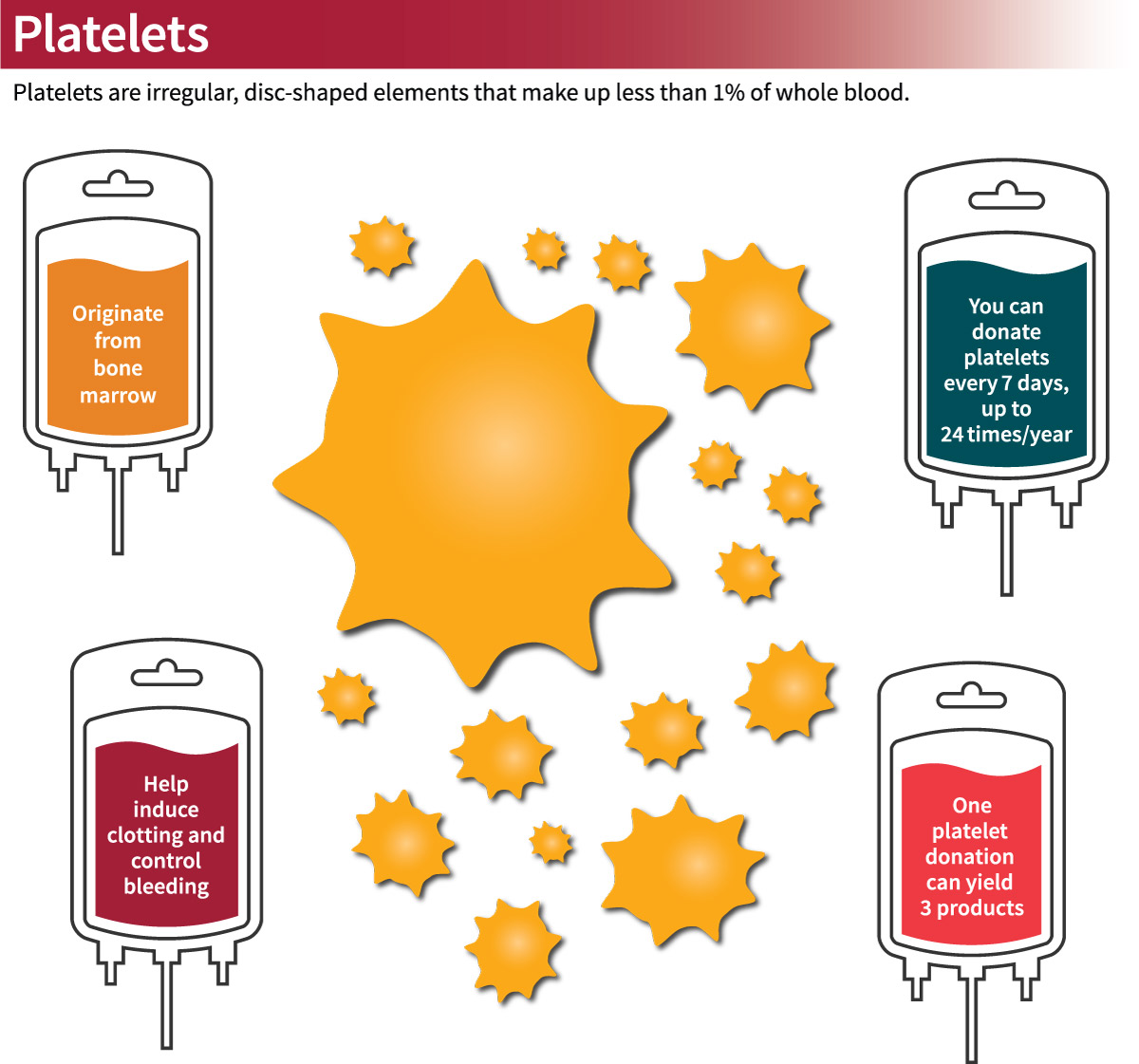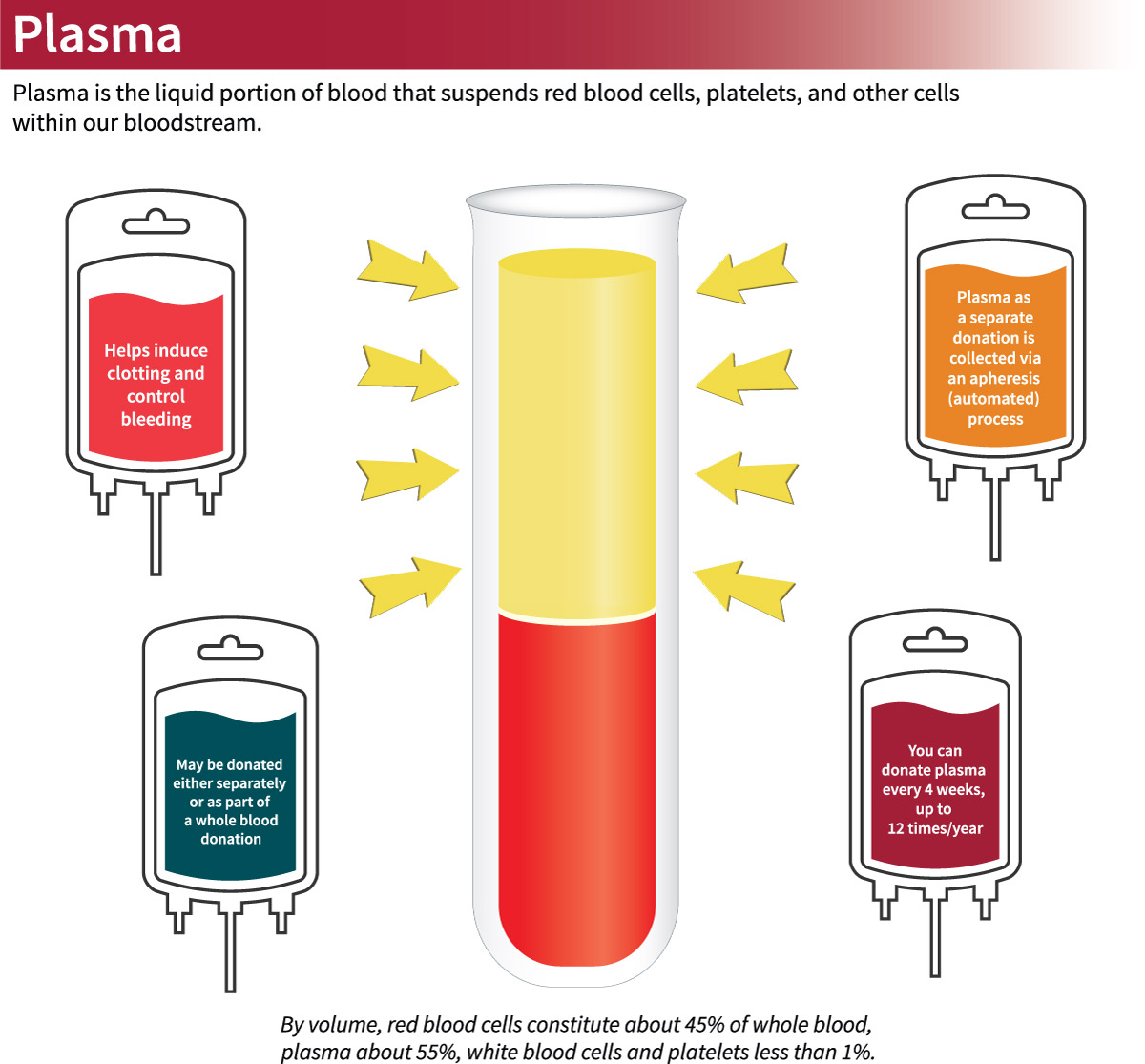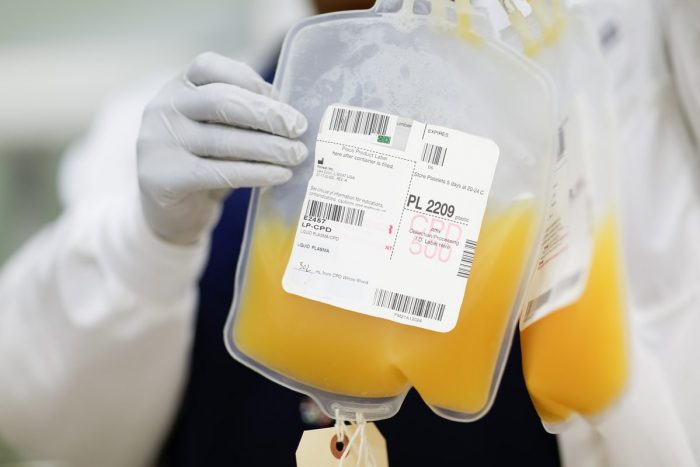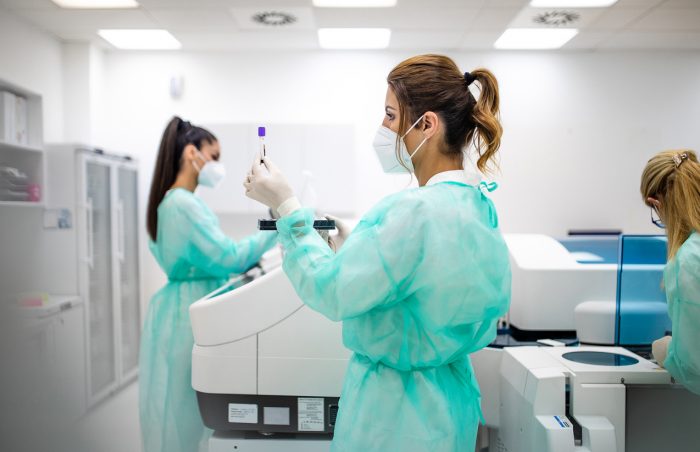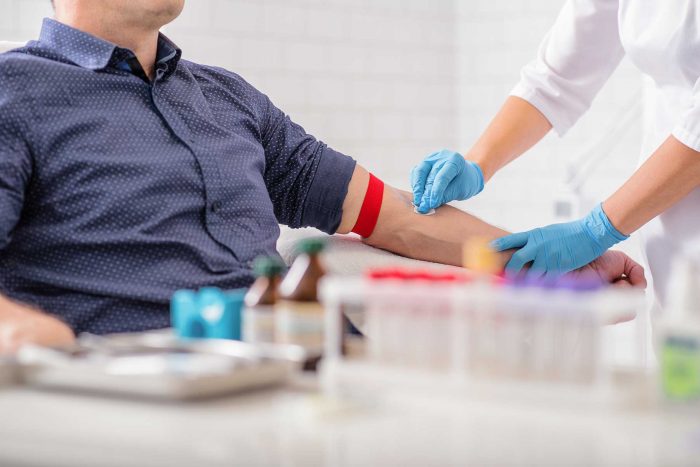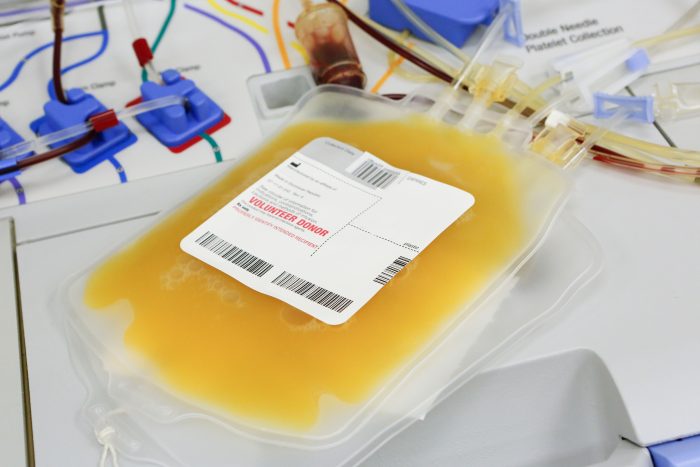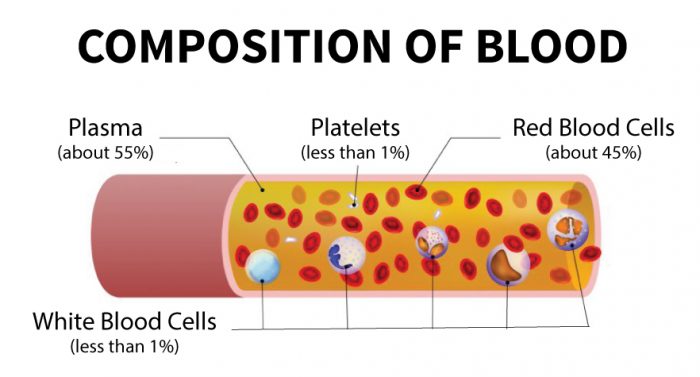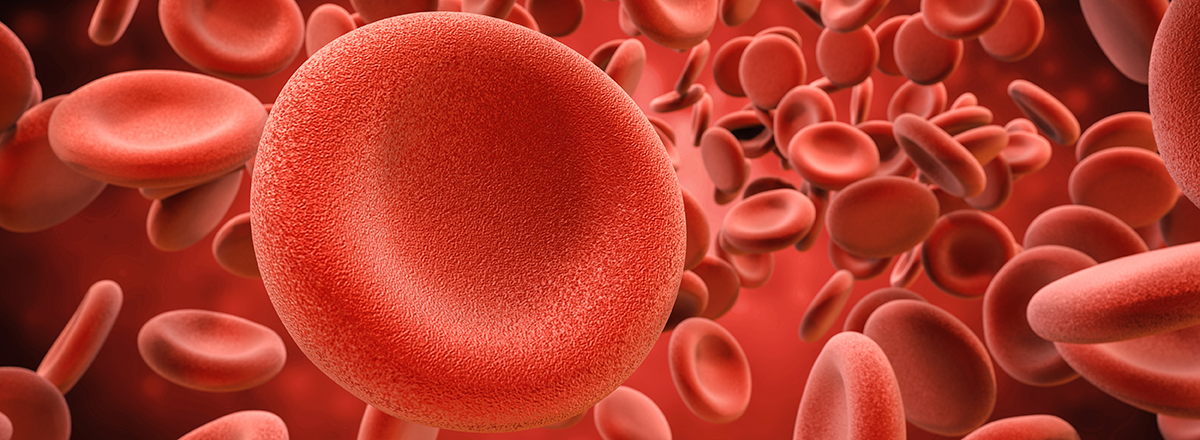
What is apheresis blood collection? Apheresis blood collection, or ABC, is a special kind of blood donation. Instead of giving one pint of whole blood (as in a regular donation), an ABC donor gives only the components of blood needed for patients that day. ABC is made possible by an amazing machine that separates the…
What are platelets used for? Platelets, which come from bone marrow, help to induce clotting and control bleeding. Patients who have been treated for leukemia with chemotherapy, for example, will often need to be transfused platelets. What is the process of donating platelets? During a platelet donation, we will collect one, two, or three units...
What is plasma used for? Much like platelets, plasma helps to induce clotting and control bleeding. However, it does this through different mechanisms and many of the clotting factors found in plasma are made from the liver. Therefore, although both plasma and platelets both help to control bleeding, they are sometimes used for different patient...
What is a SuperRed donation? This type of donation used to be called a double red blood cell donation. During a SuperRed donation, a machine is used to withdraw whole blood. Red cells are separated and retained, and the remainder of the blood is returned back to the donor. This donation safely removes twice as…
Learn More About Apheresis on our Blog
The Many Uses of Plasma
While plasma had been transfused as part of whole blood for hundreds of years, the specific value of plasma became acutely clear as a result of the devastating violence of WWII. Though plasma could not replace lost red cells and platelets, plasma and its related products were far easier to transport than whole blood (which…
SBC Makes History and Enhances Platelet Safety by Going 100% PRT
By Harry Sussmann, Operational Excellence (OpEx) Director On April 28, Stanford Blood Center became the first blood center of its size in the nation to use pathogen reduction technology, or PRT, on 100% of its transfusable platelets produced. With this milestone, SBC is ensuring that the platelet units our donors generously provide are as safe…
Platelet Donation 301 — Platelets and HLA Typing
Most of you probably know that when you donate blood products, they test for your blood type (A-positive, O-negative, etc.). But you might not know that when you donate platelets, they test for an additional type — your HLA type. HLA stands for Human Leukocyte Antigen. These antigens are found on most organs and tissues…
Diaries of a Platelet Donor
Platelet Donation 201 — Platelet Donation, Pregnancy and TRALI
Welcome back! As discussed in last week’s blog, Platelet Donation 101, those who have been previously pregnant will need to be tested for HLA antibodies (a simple tube draw that can be performed during a regular whole blood donation) and test negative in order to donate platelets and plasma to reduce risk of TRALI. But…
Platelet Donation 101
As some of you may already know (and some of you may not!), you can actually donate more than one type of blood product. When you think about blood donation, most people probably first think of whole blood (when a person gives one pint of their blood). But another equally important type of donation is…
Should You Be Donating Platelets?
When most people think about making an appointment at Stanford Blood Center (SBC), they think of coming in to donate whole blood, the most common type of donation. Less common, but needed just as much, is platelet donation through apheresis blood collection (ABC). What are platelets? Platelets are blood cells that help stop bleeding. And…
